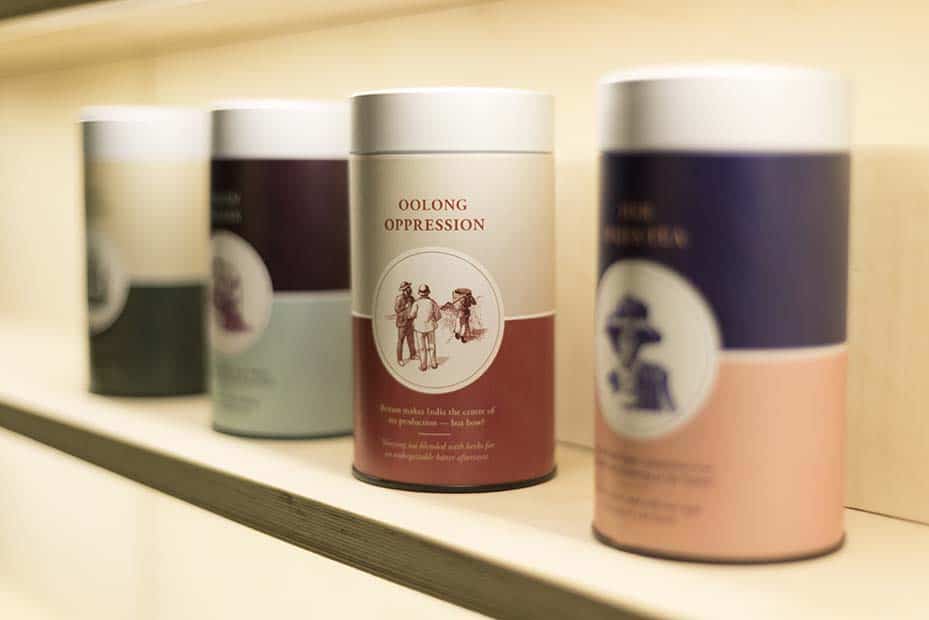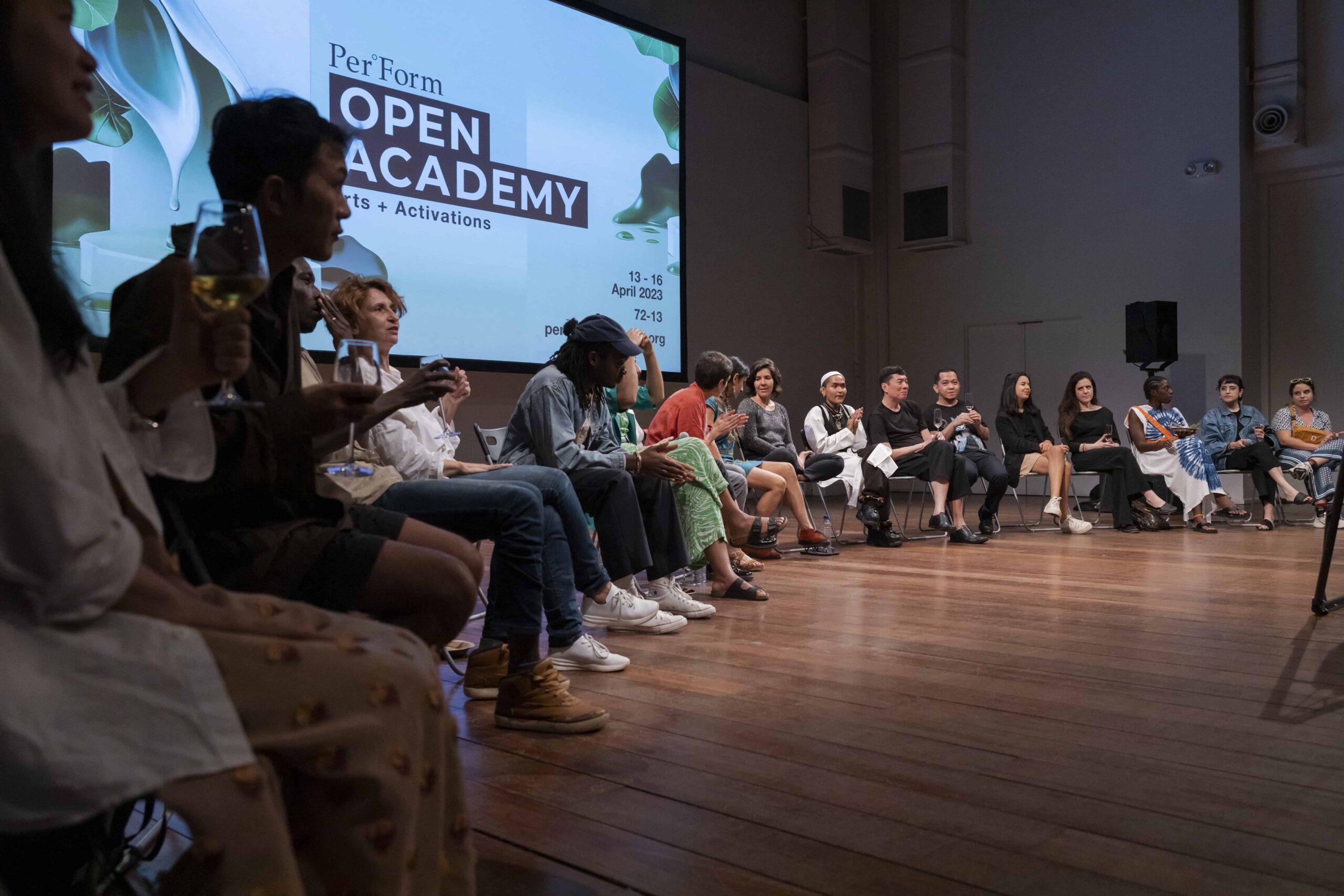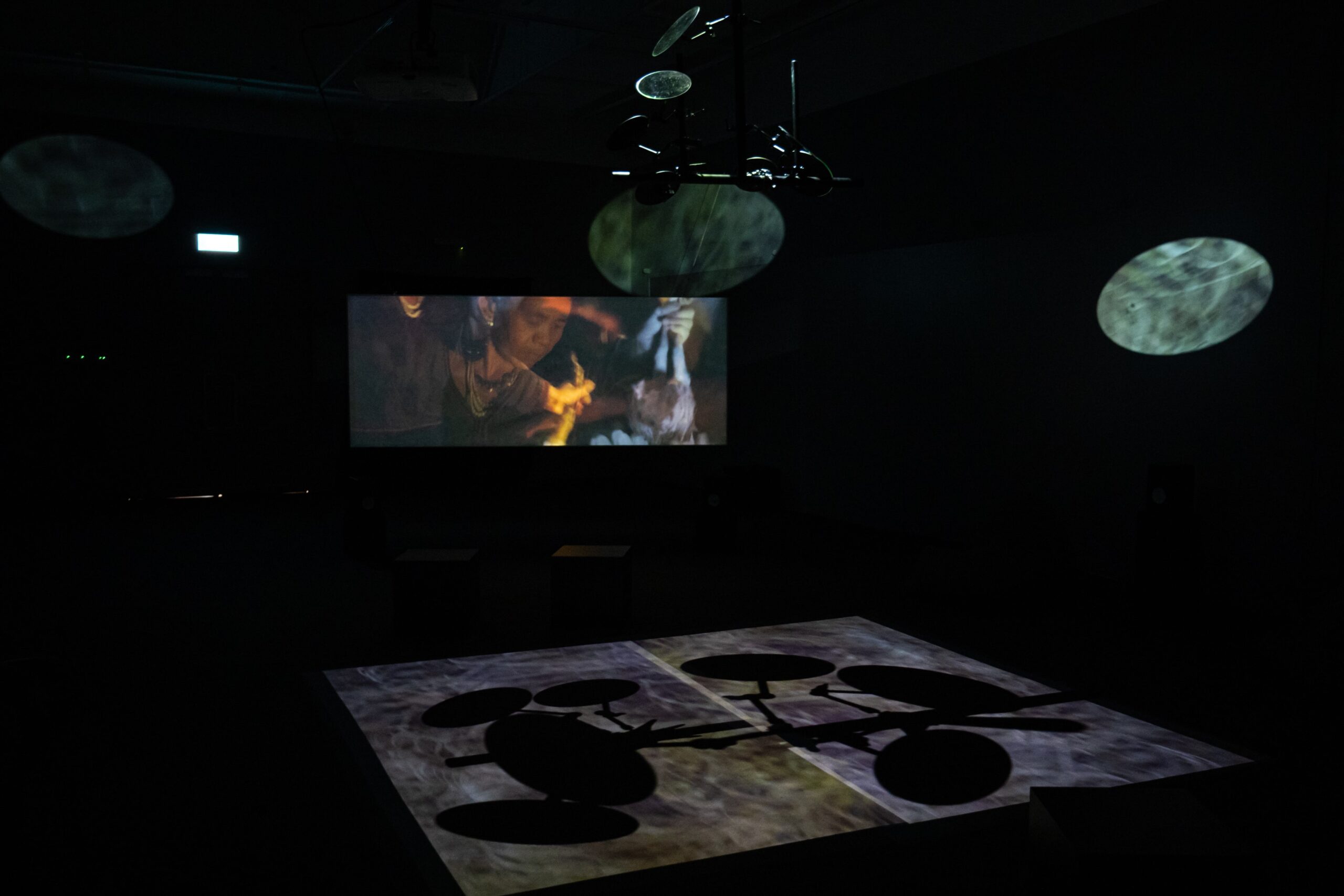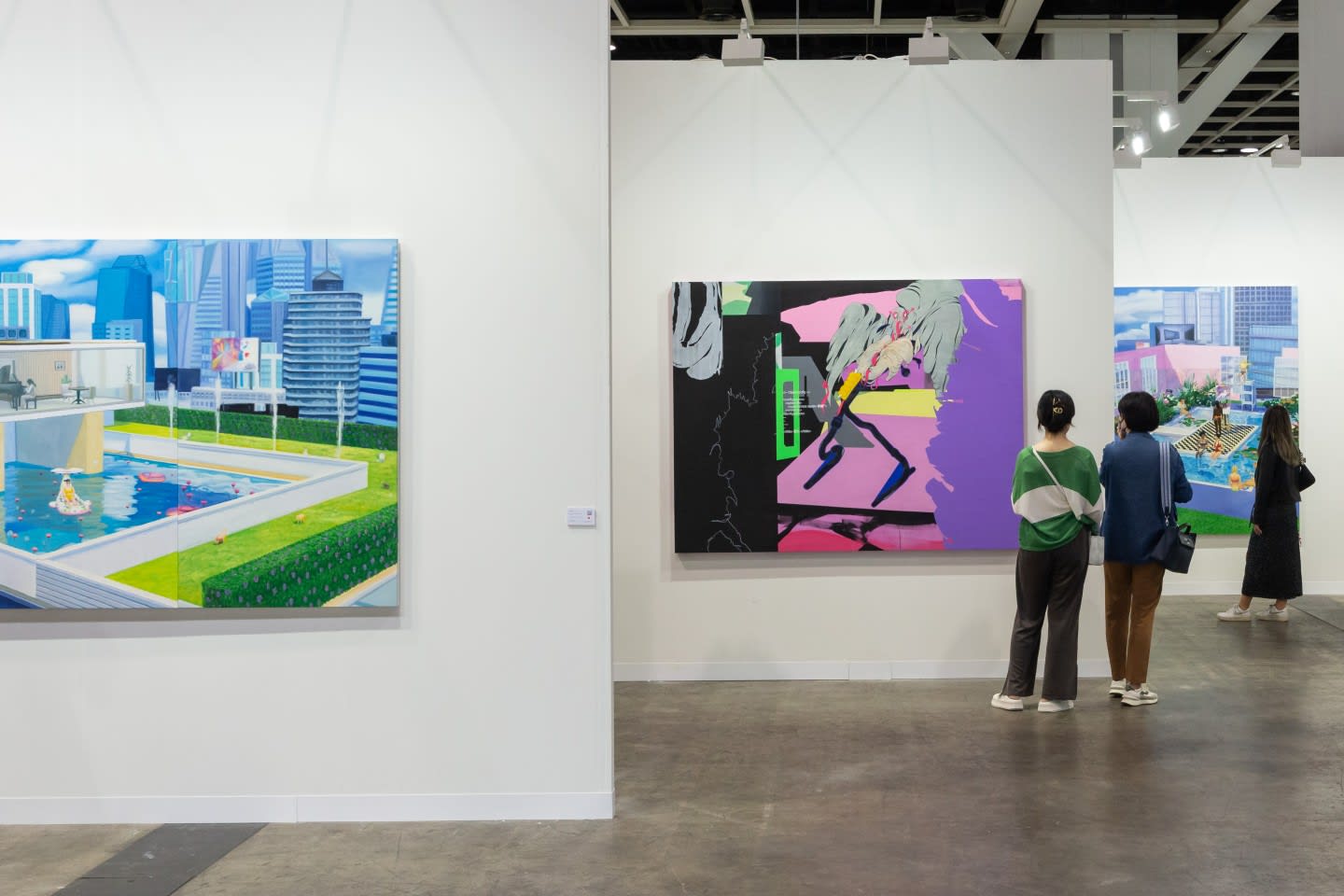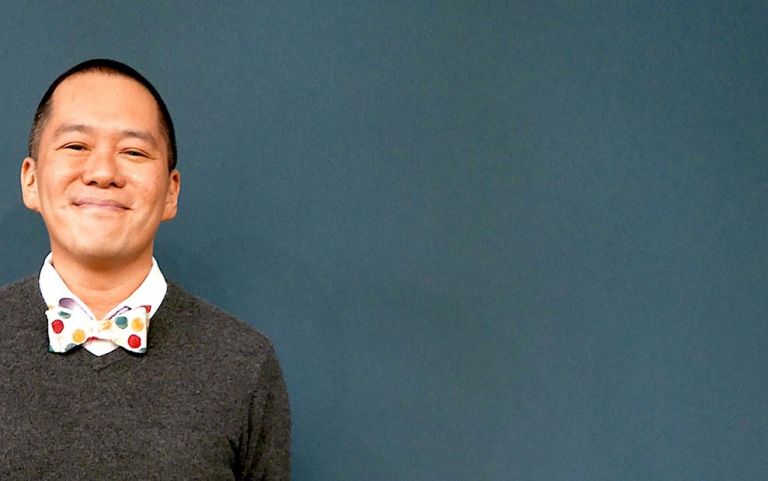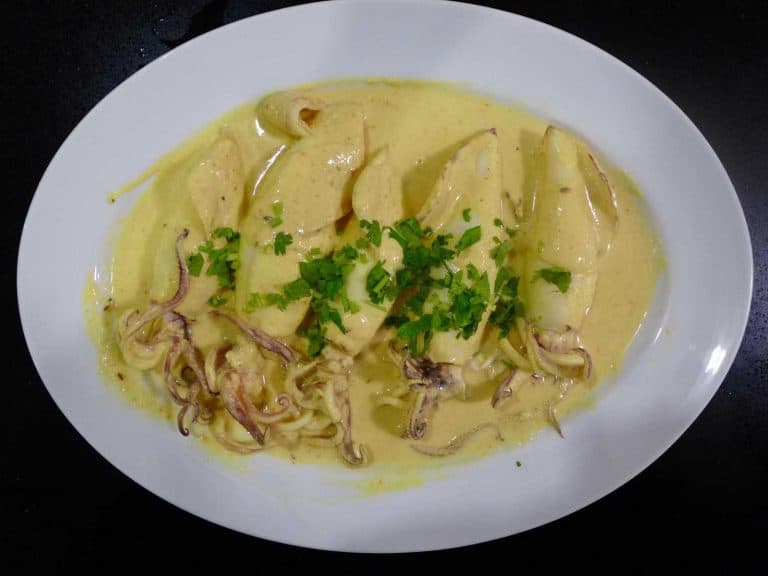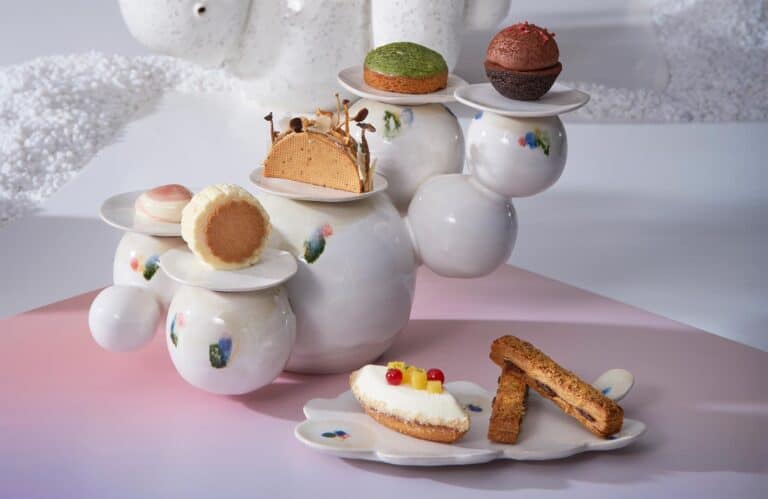The English are famous for their love of a good cup of tea. As the 1935 song Everything Stops for Tea goes:
“It’s a very good English custom, though the weather be cold or hot – When they need a little pickup, you’ll find a little teacup –
Will always hit the spot….”
Unlike many former colonies in Southeast Asia, Singapore seems to suffer little or no post-colonial angst, generally regarding its history as a former British colony with a fond, rose-tinted sense of nostalgia. The quintessential English custom of afternoon tea, complete with delicate cucumber sandwiches and scones with clotted cream, is offered at many of the city’s elegant hotels. Beautifully dressed tai-tais and birthday-celebrating secretaries alike re-enact this ritual inherited from our former colonial masters with unadulterated pleasure, blissfully unaware of the sad and sorry story that links the British thirst for empire with its thirst for tea.
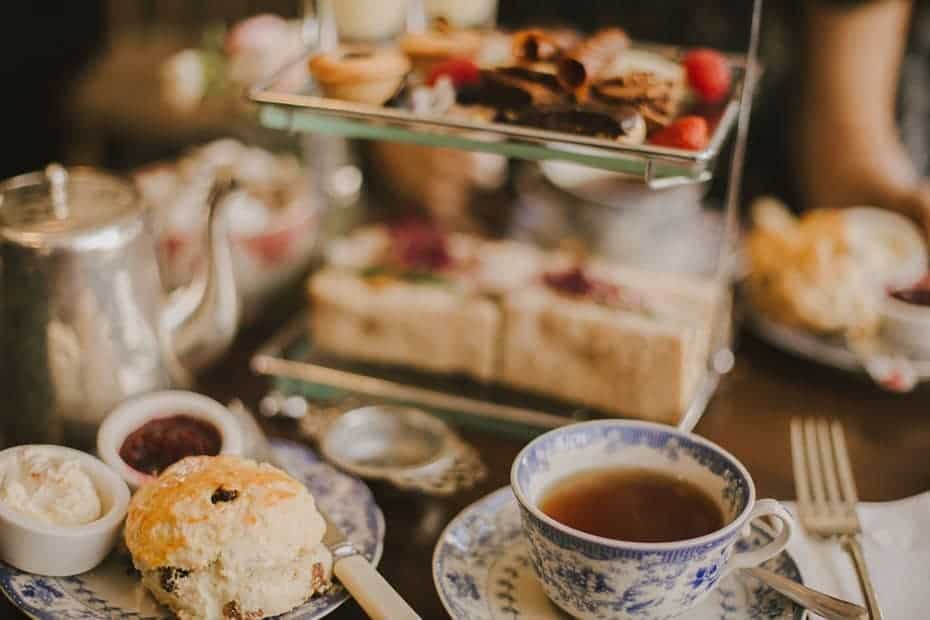
Art-experience specialist OH! Open House’s 2018 edition invites visitors to re-examine Singapore’s relationship with its colonial history via a walking tour of the heritage neighbourhood of Emerald Hill (where artworks by 22 artists will be housed within Peranakan shophouse homes and Chatsworth International School’s heritage campus) and a finale exhibition at various unused shop lots in Orchard Plaza, entitled Buy Empire Everyday Everywhere.
In one of these shop lots, artist collective Evil Empire‘s installation, Tea Revives the World, delves into the history of tea and its ties to British imperial power, intrigue and oppression. The installation is a fully functioning retail shop, selling a selection of premium tea blends that the collective has created in collaboration with one of Singapore’s oldest tea merchants, Pek Sin Choon (est. 1925).
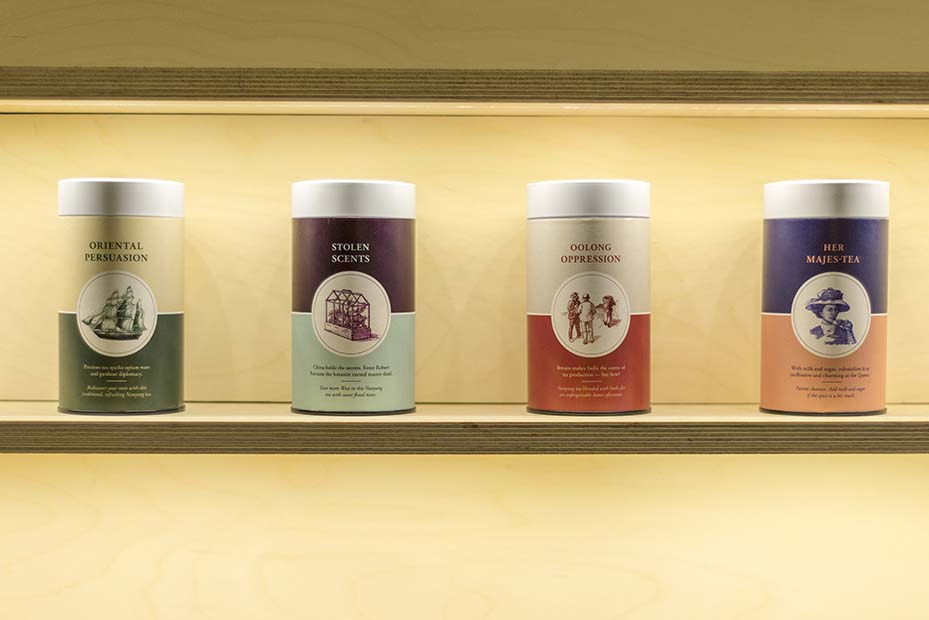
Each tea can contains a scroll that tells a story from the fraught history of British colonialism and its inextricable links to the growth, production and trade in tea as a commodity in the nineteenth century. For example, Stolen Scents tells the story of how British botanist Robert Fortune was sent by the East India Company to China to learn the secrets of growing and manufacturing tea in an act that would, by today’s standards, be considered industrial espionage!
Fortune proceeded in disguise, donning the garb of a Chinese official, wearing his hair in a queue in the manner of the Manchus (where the forehead is shaved to raise the hairline and rest of the hair grown long, gathered up, plaited and worn down the back) and managed to procure tea seeds and plants from the best gardens in China for transmission to India. He also passed on valuable information about the cultivation and manufacture of tea, which was then made available to superintendents of the British tea plantations in India. The impact of Fortune’s actions, not only on the tea trade but also on the lives of the indentured labourers who worked in the tea plantations that the British established in India, was immense. (But that’s the subject of the scroll for yet another blend of tea, Oolong Oppression.)
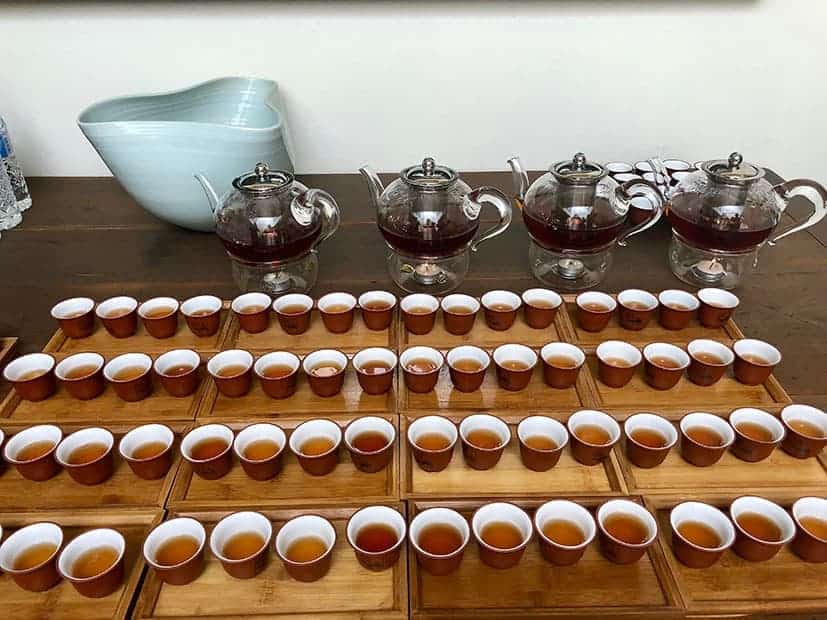
U and I had a chance to taste the teas at the media preview for OH! Open House and we can attest to the fact that they are wonderfully fragrant and aromatic. Each tea is based on one of the four flavours, suān tián kǔ là, meaning sour, sweet, bitter and spicy-hot in Chinese, symbolising the joys and sorrows that we will all encounter in life.
That’s not all – in the shop itself, there is an inner chamber or room where guests can participate in a tea ritual that invokes the conditions of power and labour.
I loved this work – it’s rich, nuanced, complex and multilayered – and, perhaps most importantly, eye-opening and thought-provoking. I will, unfortunately, probably never be able to partake of English afternoon tea at a fancy hotel with quite the same blissfully ignorant enjoyment again!
[Feature Image: Photograph by Ernest Goh, courtesy of OH! Open House.]
Notes:
- If you found this article interesting, you might also like to read about Dutch-Indonesian artist Mella Jaarsma’s work, A Blinkered View: High Tea, Low Tea, which deals with the unequal power relations between coloniser and the colonised in the context of the Dutch tea plantations of nineteenth-century Java, here.
- You can read more about the fascinating story of Robert Fortune in Sarah Rose’s book, For All the Tea in China: How England Stole The World’s Favourite Drink and Changed History.
